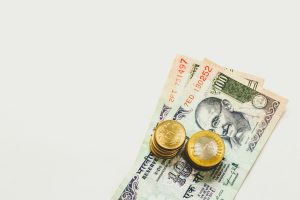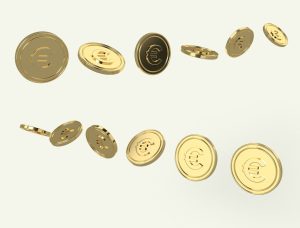Forex trading involves buying and selling currencies in the global market. The price of a currency pair is determined by the interplay of supply and demand in the market. One of the key factors that affect the price of a currency pair is the spread. But what does the spread mean in forex?
The spread is the difference between the bid price and the ask price of a currency pair. The bid price is the price at which a trader can sell a currency pair, while the ask price is the price at which a trader can buy a currency pair. The spread is the cost of trading, and it is usually expressed in pips. A pip is the smallest unit of price change in a currency pair, and it stands for percentage in point.
For example, let’s say the bid price for EUR/USD is 1.1000, and the ask price is 1.1005. The spread is 5 pips, which means that a trader will have to pay 5 pips to buy or sell EUR/USD. If the trader buys EUR/USD at 1.1005 and wants to sell it immediately, they will have to sell it at 1.1000, which means they will make a loss of 5 pips.
The spread is the main source of income for forex brokers. They make money by charging a commission on each trade or by widening the spread. The wider the spread, the more money the broker makes. However, a wider spread also means that traders will have to pay more to enter and exit trades, which can reduce their profits.
The spread can also vary depending on market conditions. During periods of high volatility or low liquidity, the spread may widen, which can make it more expensive to trade. For example, during news releases or major economic events, the spread may widen as traders rush to enter or exit positions.
Traders should always check the spread before entering a trade. They should also compare the spreads offered by different brokers to find the best deal. Some brokers offer fixed spreads, which means that the spread remains constant regardless of market conditions. Other brokers offer variable spreads, which means that the spread can change depending on market conditions.
To reduce the impact of the spread on their profits, traders can use leverage. Leverage allows traders to control a larger position with a smaller amount of capital. For example, if a trader has a leverage of 1:100, they can control a position worth $100,000 with a capital of $1,000. This can increase their potential profits but also increase their potential losses.
In conclusion, the spread is the difference between the bid price and the ask price of a currency pair. It is the cost of trading, and it is usually expressed in pips. The spread can vary depending on market conditions and can impact a trader’s profits. Traders should always check the spread before entering a trade and compare the spreads offered by different brokers to find the best deal. They can also use leverage to increase their potential profits but should be aware of the increased risk of losses.






